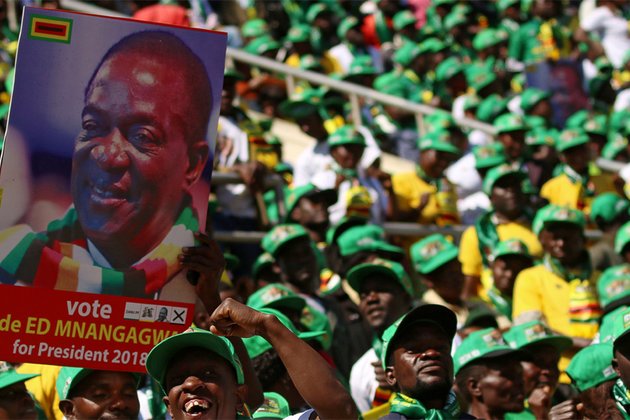Move FM Global News

Zimbabwe’s ruling ZANU-PF wins majority in parliament
Aug 2, 2018HARARE, Zimbabwe – This week, Zimbabwe witnessed one of the most significant days in its four decades of democratic existence – a Parliamentary and Presidential election that, for the first time since ever, don’t feature its former leader Robert Mugabe.
Lack of leadership choice would never again taunt the African nation as it saw 23 candidates contesting in the Presidential election and a total of 55 parties competing in the parliamentary races – which was said to be the biggest number ever in Zimbabwe’s colonial history.
The Zimbabwe Election Commission had stated that the country has around 5.5 million registered voters – with 200,000 of being being first time voters.
Further, 43.5 percent of the total voters are under the 35 years of age.
Expecting a high turnout of first-time voters – the country set up 10,985 polling stations, where Zimbabweans voted in, for the Presidential, Parliamentary and local elections.
As polls closed on Monday evening, authorities said that voter turnout was 75 percent.
Results unravelled.. more to come
Incumbent President Emmerson Mnangagwa went face to face with the Movement for Democratic Change (MDC) Alliance leader 40-year-old Nelson Chamisa in the race for a five-year term as president.
Mnangagwa, a former security chief, whose human rights record stirs hostility in many Zimbabweans has managed to promise all the things Zimbabwe needs to reform and has a strong backing.
The incumbent President had vowed to hold elections in 2018 and delivered accordingly.
He outlined a broad vision to restore economic and financial stability and declared that Zimbabwe was entering a new stage of democracy.
He put forward his goals of stabilizing the troubled Zimbabwean economy, promising job creation and urged the return of foreign investors.
He also vowed to stamp out corruption and urged the Zimbabwean diaspora overseas to return and help rebuild the country.
The cash-strapped and impoverished country has not recovered fully from crises in the last decade and most of the country’s 16 million people remain poor, while the unemployment rate is said to be as high as 90 percent.
Meanwhile, his chief rival Chamisa, who became an MP at the age of 25, is vying to become Zimbabwe’s youngest head of state.
Known for his wit and humour, Chamisa, who is a lawyer and pastor, has seen his rallies and news conferences taking on the fervour of a revivalist campaign.
Miffed with his “illegal” ouster, the country’s former president Mugabe delivered the shock twist a day before the elections, ditching support for his successor in the Zanu-PF party and backing Chamisa.
On the eve of the nation’s elections, Mugabe announced that he was wished Chamisa well in Monday’s vote.
Ruling party continues dominance
The Zimbabwe Electoral Commission announced that its results showed Mnangagwa’s ZANU-PF cruising to a big majority in the Parliament.
It said that the ruling ZANU-PF party had picked up 109 seats against 41 for the opposition Movement for Democratic Change (MDC).
It said the another 58 seats are yet to be declared.
The ZANU-PF party would now need to win 30 more to have a two-thirds majority in the House of Assembly of Parliament, which has 210 seats in all.
Meanwhile, the Zimbabwe Electoral Commission is set to announce results of the presidential poll by Saturday.
Irked at the decision, Chamisa took to Twitter to accuse the Zimbabwe Electoral Commission of releasing the parliamentary results first to prepare Zimbabweans for a Mnangagwa victory
Chamisa said, “The strategy is meant to prepare Zimbabwe mentally to accept fake presidential results. We’ve more votes than ED (Emmerson Dambudzo). We won the popular vote (and) will defend it.”


